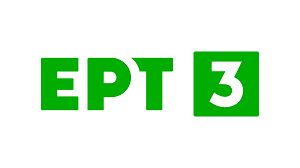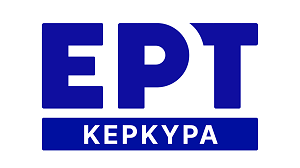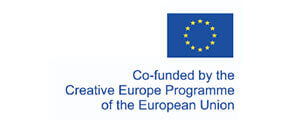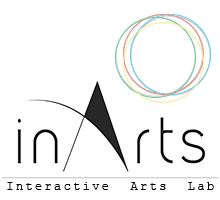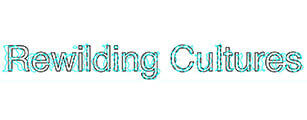This proposal aims to work further on a re-interpretation of agency that dissects the standard definition assigned within western eurocentrism. Attempting in earlier texts and works to undo such definitions of agency as a one-sided capacity to act draw from Karen Barad’s neologism of intra-action by making the unavoidable creation of multi-directional interferences any motion provokes audible through movement. In this current project, the research focuses on the western-based universalizing classification of certain sounds and voices as non-audible, i.e., neglectable noise. An interdisciplinary approach provides resources via sound studies, indigenous resonant studies, critical race studies, poetics, and feminist new materialism intersecting into and through performative interventions.
Method:
Methodologically the project defines itself a practise-based research that combines theoretical and practical insights. The theoretical approach is based on diffractive and interweaving reading methods that to a critical listening position (Robinson, 2021). It is combined with performative actions regarded as experimental settings in the early stages of the project. A first staging would be planed for speaker, and eventually a mover and a theremin. For later stages possible performative presentations are planned that enact (on) the material and found insights in a participatory and intra-active way. Possible collaborations with a musician, singer, dancer, repeater, theremin, Arduino devices and movers are in planning.
Objectives:
This proposal draws on a situatedness coined by the traditional enlightenment (Aufklärung) inheritance of an exclusionary stance. A position that still demands the responsibility for a sort of deconstruction that never can be "individual or a matter of the single, self-privileged authorial voice. It is always a multiplicity of voices, of gestures" (Derrida, 1989: 75). These voices and gestures are there, continuously emerging from human, non-human and dehumanized motions, which must be seen as the polyphony of a "the possibility of a nonexclusionary whole" (Moten, 2004: 281). Fred Moten compares the discursive encounters of these active pushes of "rough non-sense or extra-sense" with the confined phonic materiality of modern thought to improvisation—a "critical rhythm" where different strains of enlightenment become enacted and animated. However, "as the dark matter that is and that animates this [black radical] tradition" of new enlightenment, these sounds remain unheard (Moten 2004, 273-6). His insights are gained from a radical black tradition/perspective, hinting at the violent and extractive part of the story of Eurocentrism that defines the score of audibility of western Universalism. However, the phonetic confinement and creation of a totality in protecting an established orderedness by dismissing other(ed) voices and sounds also concern many other areas. The naming of the Anthropocene exemplary replays this "desire for universality in language" while simultaneously revealing that the reduction of the audible matter(ing) as modern thought's fundamental protocol unavoidably leads to catastrophic reactions.
Dismissing sounds commonly classified as noise, not as a cacophony but as a source of potentially entailed information, questions how to learn about and engage with "a whole not bound by the interminable oscillation of systemic relation and nonrelation" (Moten 2004, 280). Could the acceptance of noise allow to realize the entanglement between non-human, dehumanized, and inhuman particles (matter), essentially redefining "the always already multiple essence of singularity" (Moten 2004, 281; Braidotti, 2014) toward a minor m humanism (Wynter). The onto-epistemological aspects of feminist new materialism provide a basis for encompassing what the representative huMan (Wynter) 'we' excluded through inclusive juxtaposition, which established the boundaries of this specific Universalism.
Conclusion:
For the main question, how can noise be listened to and be made sense of, a conclusion cannot yet be drawn. The focus is on research and experimental projects toward ways of making the unknown from an inside position that claims the universal definition. Working tool is the exteriority-within definition of agential realism which realizes its inside position and enables a small opening. Therefore, it is an undoing from within.
References:
Barad, Karen Michelle. 2007. Meeting the Universe Halfway: Quantum Physics and the Entanglement of Matter and Meaning. Durham, N.C: Duke University Press.
Braidotti, Rosi. 2015. “Yes, There Is No Crisis. Working Towards the Posthumanities.” DiGeSt. Journal of Diversity and Gender Studies 2 (1-2): 9. https://doi.org/10.11116/jdivegendstud.2.1-2.0009.
Derrida, Jaques. 1989. “In Discussion with Christopher Norris”, in Deconstruction: Omnibus Volume, ed. Andrew Benjamin, Catherine Cooke and Andrea Papadakis. London: Academy Editions. pp. 71-5
McKittrick, Katherine, ed. 2015. Sylvia Wynter: On Being Human as Praxis. Durham: Duke University Press.
Moten, Fred. 2004. “Knowledge of Freedom.” CR: The New Centennial Review 4 (2): 269–310. https://doi.org/10.1353/ncr.2005.0009.
Back



